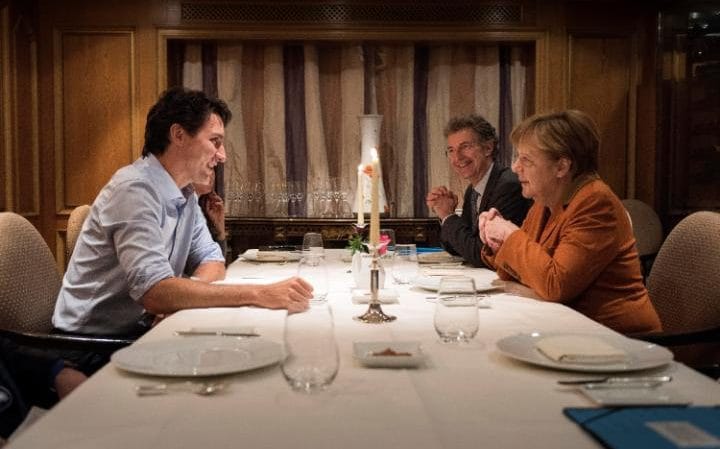RCPalmer
Member
- Reaction score
- 0
- Points
- 210
Humphrey Bogart said:100% in agreement on your first point I feel both the Reg and Res need reform. Your second part, I don't think we need first principles work, the works already been done, we've just never bothered following through on our words. It's words without any action. It's been articulated many times, General Purpose Combat Capability and Medium Weight Force. A medium weight force is supposed to be able to do everything across th spectrum of conflict, though not as well at some tasks that would be more suitable to a light force or heavy force.
We've got doctrine, we've got designs and future concepts, let's buy equipment and properly man and support our forces and align ourselves with doctrine, designs and future concepts. The first question we should be asking ourselves whenever we buy a new piece of equipment is, does this support our doctrine at present and in the future. We let equipment drive our doctrine when it should be the other way around.
Amen. All I would note is that the PRes costs overall are very inexpensive and quite stable at around 1 Billion CAD/year which includes RSS, equipment, base support, etc.. It is the overall defence budget overall which grew so rapidly in the 2000s with virtually no readiness improvements, and relatively few capability enhancements. One of the more interesting findings of Leslie's 2011 transformation report was most of the funding growth in the period went into increased personnel costs with questionable ROI. By way of comparison, the Aussies do everything we do (and a number of things we don't) with a full time force of 55,000.
With the PRes as such a resource starved organization, I would offer that there are plenty of opportunities for modest funding increases which could produce significant readiness enhancements. Consider the retention implications of an adequate allocation of our relatively inexpensive vehicles, and weapons for example. Clearly, both the PRes and RegF structures need reform, but if the question is "could the PRes gainfully use the additional resources if they received them", I think the answer is that they could.
Things that make sense to me:
Humphrey Bogart said:1. Medium weight forces - We have a small Army so the medium weight concept makes sense to me, it also gives us flexibility. A LAV based force is a potent weapon but we've opted to reinvent the wheel every time we buy a new piece of kit, none of it makes any sense. e.g. Armoured Recce with a TAPV.
Yep-still trying to figure out who wanted that vehicle. It doesn't seem to be meeting anyone's needs.
Humphrey Bogart said:2. The Brigade - Every Army in the world worth its salt works around the Brigade concept, why change what works?
Agreed, and I think that the three brigade structure is correct for the current readiness model. I would offer that the structure (i.e. number of units) in each brigade could be realigned to get more bang for our buck, or reduced if we accept that additional PYs are not forthcoming (which they certainly could find if worked on the HQ bloat).
Humphrey Bogart said:3. Readiness - We've got three Brigades but the idea that one Brigade is at High Readiness while the others are in Trg and Support is flawed. Readiness should be managed at the Brigade level and tasks should be downloaded the Brigades to decide who/what to employ. Each Brigade should maintain 1/3 of it's force at High Readiness. Given our geographical spread, this makes the most sense, especially when you consider the domestic tasks we're frequently called upon to do. The whole Lines of Operations concept is ridiculous, it's a staff officer wet dream and is micromanagement to the tenth degree. We're a professional army, a military force should be able to rapidly re-roll itself to perform all tasks along the spectrum of conflict.
That works until we get a brigade sized mission, like we were required to sustain in Afghanistan. There is also a span of control question. If we want to put every enabler into the fight, sometimes we will need a brigade HQ, even though we aren't necessarily deploying a brigade. DOMOPS are a bit of a different beast as the forces responding to them aren't (and probably don't need to be) in a high readiness cycle. Is there any reason a unit outside of HR couldn't fill an IRU task for example?



